Research Staff
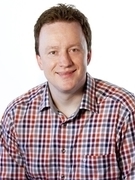
Dr. Rainer Beck
Rainer’s research interests are based around high precision and high-power laser processes and laser beam delivery for both medical and industrial applications. His recent research projects for industrial applications include short and ultrashort subtractive laser processing, novel laser beam delivery, additive processing with an emphasis on laser metal deposition, laser beam shaping and process monitoring. His current medical research focusses on novel high precision and minimally invasive laser surgery techniques for cancer treatment.
Rainer graduated from Heriot-Watt University with an MPhys (hons) in Optoelectronics and Lasers in 2007. He graduated with his PhD on “Adaptive Optics for Laser Processing” in 2011. His PhD studies involved dynamic laser beam shaping using deformable mirrors and spatial light modulators for short pulsed laser processing applications including laser drilling and marking. Rainer gained industrial experience working in R&D on automotive display applications for Daimler AG, via Brunel GmbH, in Sindelfingen, Germany, in 2012 and 2013. After that, he joined ARC Laser GmbH in Nuremberg, Germany, as product manager for surgical lasers. In 2014 he returned to the Applied Optics and Photonics Group as research associate working on the ARMoR project and surgical applications of lasers for cancer treatment.
Rainer graduated from Heriot-Watt University with an MPhys (hons) in Optoelectronics and Lasers in 2007. He graduated with his PhD on “Adaptive Optics for Laser Processing” in 2011. His PhD studies involved dynamic laser beam shaping using deformable mirrors and spatial light modulators for short pulsed laser processing applications including laser drilling and marking. Rainer gained industrial experience working in R&D on automotive display applications for Daimler AG, via Brunel GmbH, in Sindelfingen, Germany, in 2012 and 2013. After that, he joined ARC Laser GmbH in Nuremberg, Germany, as product manager for surgical lasers. In 2014 he returned to the Applied Optics and Photonics Group as research associate working on the ARMoR project and surgical applications of lasers for cancer treatment.
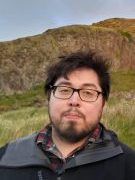
Dr. Enrique Calisto
Enrique graduated in 2020 with BSc in Mathematical Engineering and a Master in Physics from University of Chile.
He went to complete a PhD in Applied and Computational Mathematics from the University of Edinburgh in 2024, his work focused on the mathematical modeling of optical solitons in nematics liquid crystals and the design of an optical isolator based on soliton waveguides. Upon completing his PhD, Enrique joined the Applied Optics and Photonics (AOP) Research group as a Research Associate, his work has been focusing in the beamshaping project and the numerical modelling of nondiffracting optical beams.
Enrique’s research interest are in the application of partial differential equations (PDE) techniques to photonics, laser-material interactions and other optics physics applications.
He went to complete a PhD in Applied and Computational Mathematics from the University of Edinburgh in 2024, his work focused on the mathematical modeling of optical solitons in nematics liquid crystals and the design of an optical isolator based on soliton waveguides. Upon completing his PhD, Enrique joined the Applied Optics and Photonics (AOP) Research group as a Research Associate, his work has been focusing in the beamshaping project and the numerical modelling of nondiffracting optical beams.
Enrique’s research interest are in the application of partial differential equations (PDE) techniques to photonics, laser-material interactions and other optics physics applications.
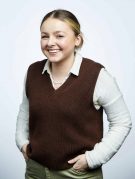
Dr. Jane Crowley
Jane graduated from University College Cork (UCC) with a BSc in Astrophysics in 2019. During this time, she worked as a research intern at the Tyndall National Institute as part of the Biophotonics Group, investigating the GAs in Scattering Media Absorption Spectroscopy (GASMAS) technique for monitoring oxygen levels in the lungs of preterm infants. She then went on to complete a PhD in Electrical and Electronic Engineering from the University of Nottingham in 2023, as part of the Optics & Photonics Group. There, she developed a novel miniature endoscope for early-stage gastrointestinal cancer detection utilising the Spatial Frequency Domain Imaging (SFDI) technique, providing high contrast maps of optical properties to differentiate between healthy and cancerous tissue phantoms.
Currently, she is a Technology Specialist at the Medical Device Manufacturing Centre (MDMC), providing companies with expertise in the development of their medical devices.
Currently, she is a Technology Specialist at the Medical Device Manufacturing Centre (MDMC), providing companies with expertise in the development of their medical devices.
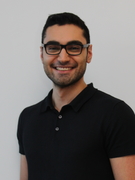
Dr. Tamer Y. Cosgun
Tamer is a technology specialist at the Medical Device Manufacturing Centre (MDMC), a project part-funded by the European Regional Development Fund and part-funded by the Edinburgh and South East Scotland City Deal, where he takes on technical responsibility for the success of client applications.
Previously, he was a research engineer for the CDTAP conducting his research in association with AWE. His research areas consisted of fibre sensing technologies, primarily absorption spectroscopy for gas speciation measurements and Fabry-Perot interferometry via single-core and multi-core fibre tip modifications. Tamer graduated with a master’s degree from Heriot-Watt University in 2017 with distinction in mechanical engineering.
Previously, he was a research engineer for the CDTAP conducting his research in association with AWE. His research areas consisted of fibre sensing technologies, primarily absorption spectroscopy for gas speciation measurements and Fabry-Perot interferometry via single-core and multi-core fibre tip modifications. Tamer graduated with a master’s degree from Heriot-Watt University in 2017 with distinction in mechanical engineering.

Dr. Adrian Dzipalski
Adrian’s research interests are in optical sensing of near-field, large hydrodynamic environments and development of multi-parameter sensing platforms. He is also interested in optically actuated phase changing materials for dynamically reconfigurable metasurfaces.
Adrian graduated from Heriot-Watt University, Edinburgh in 2013 with an MPhys in Photonics and Lasers. Later that year he commenced his PhD studies with the Diffractive Optics group at Heriot-Watt University. The PhD was aimed at developing various Photonic devices for sensing and security applications. Upon completing his PhD in 2017, Adrian joined the Fiber optics group within the Applied Optics and Photonics (AOP) Research group as a Research Associate. He is currently working on a EU Horizon 2020 funded project, LAkHsMI which is aimed at developing a new bio inspired technology to make continuous cost-effective measurements of the near-field, large-scale hydrodynamic situation, for environmental monitoring in cabled ocean observatories, marine renewable energy and port/harbour security.
Adrian graduated from Heriot-Watt University, Edinburgh in 2013 with an MPhys in Photonics and Lasers. Later that year he commenced his PhD studies with the Diffractive Optics group at Heriot-Watt University. The PhD was aimed at developing various Photonic devices for sensing and security applications. Upon completing his PhD in 2017, Adrian joined the Fiber optics group within the Applied Optics and Photonics (AOP) Research group as a Research Associate. He is currently working on a EU Horizon 2020 funded project, LAkHsMI which is aimed at developing a new bio inspired technology to make continuous cost-effective measurements of the near-field, large-scale hydrodynamic situation, for environmental monitoring in cabled ocean observatories, marine renewable energy and port/harbour security.
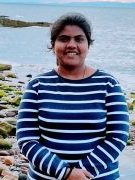
Dr. Gautami Alagarsamy
Dr. Gautami Alagarsamy is a Postdoctoral Research Associate at the Institute of Photonics and Quantum Sciences, Heriot-Watt University, where she develops autonomous alignment strategies for complex laser and optical systems using advanced machine learning and robotic platforms. She contributes to an EPSRC-funded collaboration with the University of Edinburgh and Leonardo UK, focusing on AI-driven optimisation and control for high-precision optical manufacturing.
Previously, she served as an Assistant Professor at SNS College of Technology and as a Startup Mentor at SNS Innovation Hub, leading innovation programmes, accreditation activities and strategic partnerships with national-level organisations and institutes. Her academic background spans a PhD in Machine Learning and IoT (Anna University), an MSc in Robotics (Heriot-Watt University), an M.E. in VLSI Design, and a B.E. in Electrical and Electronics Engineering.
Her research interests include physics-aware AI for optical alignment, robotics for precision assembly, IoT-enabled intelligent systems and data-driven control in smart manufacturing environments.
Previously, she served as an Assistant Professor at SNS College of Technology and as a Startup Mentor at SNS Innovation Hub, leading innovation programmes, accreditation activities and strategic partnerships with national-level organisations and institutes. Her academic background spans a PhD in Machine Learning and IoT (Anna University), an MSc in Robotics (Heriot-Watt University), an M.E. in VLSI Design, and a B.E. in Electrical and Electronics Engineering.
Her research interests include physics-aware AI for optical alignment, robotics for precision assembly, IoT-enabled intelligent systems and data-driven control in smart manufacturing environments.
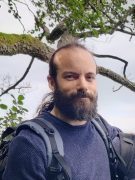
Dr. Lucas Groult
Lucas Groult graduated in 2016 from Universite Paris-Diderot Paris 7, with a Master degree in physics “Quantum Devices”.
He completed his PhD on microfabricated ion trap for compact optical atomic clock in 2021. This work involved the design and optimisation of laser benches, simultaneously using multiple wavelength ranging from UV to IR, in order to trap, cool down an Yb+ ion and probe its clock transition.
He joined Heriot-watt university in 2022, working with Prof. Daniel Esser to develop amplified, mode-locked, IR laser sources, with applications in laser welding capabilities. His work has been focused on solid-state lasers since then.
He currently is a research associate working on the Prosperity Partnership Project, a close partnership between Heriot-watt University, Edinburgh University and Leonardo, aiming to develop additive manufacturing of complex optical systems. This project involves various manufacturing techniques, including laser welding of dissimilar material and laser polishing.
He completed his PhD on microfabricated ion trap for compact optical atomic clock in 2021. This work involved the design and optimisation of laser benches, simultaneously using multiple wavelength ranging from UV to IR, in order to trap, cool down an Yb+ ion and probe its clock transition.
He joined Heriot-watt university in 2022, working with Prof. Daniel Esser to develop amplified, mode-locked, IR laser sources, with applications in laser welding capabilities. His work has been focused on solid-state lasers since then.
He currently is a research associate working on the Prosperity Partnership Project, a close partnership between Heriot-watt University, Edinburgh University and Leonardo, aiming to develop additive manufacturing of complex optical systems. This project involves various manufacturing techniques, including laser welding of dissimilar material and laser polishing.

Dr. Saba Khan
Saba joined the group as a research staff in November 2024.
Before joining the group, she was a research staff member in the Optical Manipulation Group at the University of St. Andrews, where she specialized in designing and developing optical trapping systems. Her work involved both conventional trapping methods and advanced nanostructure-assisted near-field techniques to trap particles ranging from micron to nanoscale sizes. She also contributed to high-precision speckle metrology, utilizing integrating spheres, multimode fibres, and single scattering surfaces. Additionally, she worked on an optoacoustic imaging project, using droplet beams for the early diagnosis of Alzheimer’s disease.
Earlier in her career, she was a postdoctoral fellow at the Singular Optics Laboratory at the Indian Institute of Technology Delhi, India, where her research focused on engineering light beams through wavefront shaping, polarization structuring, and modulation of spatial coherence. She investigated the generation and detection of structured light embedded with singularities, both in free space and within few-mode fibres.
She completed her PhD at the Indian Institute of Technology Kharagpur, India, in 2017, where her focus was on the technology development and modelling of few-mode fibres for spatial beam generation and multiparameter sensing. She was awarded a Women Scientist Project to develop an analytical algorithm for mode calculation of N-layered 1-D microstructure fibres, with the goal of designing host structures for high-performance nonlinear fibre devices such as flat-top supercontinuum sources and wideband parametric amplifiers.
Before joining the group, she was a research staff member in the Optical Manipulation Group at the University of St. Andrews, where she specialized in designing and developing optical trapping systems. Her work involved both conventional trapping methods and advanced nanostructure-assisted near-field techniques to trap particles ranging from micron to nanoscale sizes. She also contributed to high-precision speckle metrology, utilizing integrating spheres, multimode fibres, and single scattering surfaces. Additionally, she worked on an optoacoustic imaging project, using droplet beams for the early diagnosis of Alzheimer’s disease.
Earlier in her career, she was a postdoctoral fellow at the Singular Optics Laboratory at the Indian Institute of Technology Delhi, India, where her research focused on engineering light beams through wavefront shaping, polarization structuring, and modulation of spatial coherence. She investigated the generation and detection of structured light embedded with singularities, both in free space and within few-mode fibres.
She completed her PhD at the Indian Institute of Technology Kharagpur, India, in 2017, where her focus was on the technology development and modelling of few-mode fibres for spatial beam generation and multiparameter sensing. She was awarded a Women Scientist Project to develop an analytical algorithm for mode calculation of N-layered 1-D microstructure fibres, with the goal of designing host structures for high-performance nonlinear fibre devices such as flat-top supercontinuum sources and wideband parametric amplifiers.
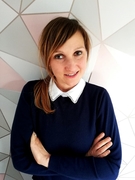
Dr. Paulina Morawska
Paulina’s research interest is in microwelding of the highly dissimilar materials and ultrathin flexible glass with ultra-short pulses laser. She is also interest in micro material processing including material machining for medical applications.
Paulina graduated from Gdansk University of Technology in Poland in 2011 with a MEng in Applied Physics. In 2012 she joined St Andrews University to do her PhD in organic semiconductor polymer lasers for use as explosives sensors. She completed her PhD in January 2016. After her PhD she was awarded with SUPA funding for Industrial placement at Helia Photonics Ltd, Livingston, Scotland. As a Process Development Engineer/Research Fellow at Helia Photonics she was involved in building a novel apparatus for the cleaving and in-situ coating of laser bars in a controlled environment. After that, she join Coherent Glasgow branch on the position of Laser System Engineer to work on high power ultra-short pulse lasers. In September 2017, she joined Applied Optics and Photonics (AOP) group as a Research Associate to work on the ultra-short pulse laser bonding of dissimilar materials, UltraWELD project.
Paulina graduated from Gdansk University of Technology in Poland in 2011 with a MEng in Applied Physics. In 2012 she joined St Andrews University to do her PhD in organic semiconductor polymer lasers for use as explosives sensors. She completed her PhD in January 2016. After her PhD she was awarded with SUPA funding for Industrial placement at Helia Photonics Ltd, Livingston, Scotland. As a Process Development Engineer/Research Fellow at Helia Photonics she was involved in building a novel apparatus for the cleaving and in-situ coating of laser bars in a controlled environment. After that, she join Coherent Glasgow branch on the position of Laser System Engineer to work on high power ultra-short pulse lasers. In September 2017, she joined Applied Optics and Photonics (AOP) group as a Research Associate to work on the ultra-short pulse laser bonding of dissimilar materials, UltraWELD project.
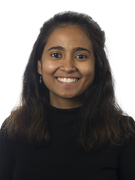
Dr. Logaheswari Muniraj
Loki is a postdoctoral researcher in the experimental medicine domain of the U-Care project in collaboration with University of Edinburgh and University of Bath. Her role is to fabricate micro-lenses using 2PP for imaging the far-field lung cavities. This will play a crucial role to map the lung airways providing insight into accessing deeper areas of the lung that hasn’t been reached or explored before. In addition to the fabrication of lenses, she is also developing novel tissue sampling tools using advanced laser-based manufacturing processes for performing biopsy with high precision and repeatability.
Loki received her doctorate in 2024 from Heriot Watt University, for her work focussing on ‘Laser-based fabrication and heat treatment of shape memory alloys (SMAs)’. This was part of the EPSRC funding call for adventurous manufacturing project (EP/T005076/1) to build SMA based micro-scale components for applications in minimally invasive surgery. Her work effectively demonstrated the feasibility of fabricating NiTi-based SMAs using laser-induced forward transfer (LIFT).
Prior to her PhD, Loki received her master’s from Karlsruhe Institute of Technology and Aix-Marseille University with specialisation in Photonic materials and devices. Her research during this time included constructing holographic notch filters, fabricating volume Bragg gratings and developing free-form micro-optical elements using high R.I resins. Loki’s current research interests are inclined towards using laser-based manufacturing processes for precision engineering biomedical devices with focus on diagnostic and surgical applications. Beyond her research, Loki is also a passionate STEM ambassador and mental health advocate.
Loki received her doctorate in 2024 from Heriot Watt University, for her work focussing on ‘Laser-based fabrication and heat treatment of shape memory alloys (SMAs)’. This was part of the EPSRC funding call for adventurous manufacturing project (EP/T005076/1) to build SMA based micro-scale components for applications in minimally invasive surgery. Her work effectively demonstrated the feasibility of fabricating NiTi-based SMAs using laser-induced forward transfer (LIFT).
Prior to her PhD, Loki received her master’s from Karlsruhe Institute of Technology and Aix-Marseille University with specialisation in Photonic materials and devices. Her research during this time included constructing holographic notch filters, fabricating volume Bragg gratings and developing free-form micro-optical elements using high R.I resins. Loki’s current research interests are inclined towards using laser-based manufacturing processes for precision engineering biomedical devices with focus on diagnostic and surgical applications. Beyond her research, Loki is also a passionate STEM ambassador and mental health advocate.
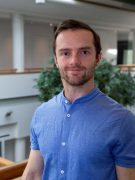
Dr. Donald Risbridger
Donald graduated from Heriot-Watt in 2017 with an MPhys. During his time as an undergraduate he carried out summer projects within the School of Engineering and Physical Sciences on imaging with SPAD cameras, Laser Induced Breakdown Spectroscopy (LIBS) and a Carnegie Scholarship funded project on optimising optical tweezing processes. His Master’s project consolidated upon the latter, with microfluidic device design and parameter studies for the optimal optical isolation of yeast cells forming the majority of this work.
Donald’s PhD project at Heriot-Watt revolved around ultrafast laser resection of biological tissues using various beam geometries, with the aim of improving the precision and efficiency of minimally invasive surgical procedures. He is currently undertaking a multidisciplinary research endeavour looking at implementing a robotic arm to automate the alignment of various laser systems. This entails working closely with robotics and machine learning researchers in addition to industrial collaborators.
Donald has also undertaken numerous outreach roles during his studies at Heriot-Watt, primarily as a Senior Student Ambassador. The responsibilities of this role range from helping out with campus open days to leading more bespoke department tours for the physics applicant days. Additionally, he has helped run the induction programmes for the physics department and is a current member of The Association of Industrial Laser Users Early Career Researchers Committee.
Donald’s PhD project at Heriot-Watt revolved around ultrafast laser resection of biological tissues using various beam geometries, with the aim of improving the precision and efficiency of minimally invasive surgical procedures. He is currently undertaking a multidisciplinary research endeavour looking at implementing a robotic arm to automate the alignment of various laser systems. This entails working closely with robotics and machine learning researchers in addition to industrial collaborators.
Donald has also undertaken numerous outreach roles during his studies at Heriot-Watt, primarily as a Senior Student Ambassador. The responsibilities of this role range from helping out with campus open days to leading more bespoke department tours for the physics applicant days. Additionally, he has helped run the induction programmes for the physics department and is a current member of The Association of Industrial Laser Users Early Career Researchers Committee.
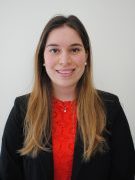
Dr. Carolina Tacchella
Carolina graduated with a bachelor’s degree in biomedical engineering in 2018 and a master’s degree in Bioengineering in 2020 at the University of Genoa, Italy. Her master project, performed at the Technical University of Denmark, Copenhagen, focused on the fabrication of a microfluidic polymer chip, specifically for the integration of molecular assays for the detection of DNA affected by tuberculosis.
In 2020 she joined Heriot-Watt University within the School of Engineering and Physical Sciences as a PhD student in Mechanical Engineering working on the biomechanical changes in soft tissues due to compartment syndrome, a condition with an increase in pressure inside a muscle, which restricts blood flow and causes pain, and developing quantitative monitoring techniques able to track how the condition progresses.
After the completion of her PhD, she joined Applied Optics and Photonics (AOP) group as a Research Associate on an EPSRC IAA Project in collaboration with Microplate Dx Ltd. (Glasgow SME) to work on the characterisation of materials towards fully reusable electrochemical medical platforms. This project involved identifying suitable plastic materials which can be sterilised multiple times to enable multiple uses of Microplate Dx diagnostic platform.
In August 2024 Carolina started working at the Medical Device Manufacturing Centre (MDMC), a project currently funded by Scottish Enterprise, as a technology specialist in medical device research and development, offering technical expertise and assisting SMEs in advancing their products.
In 2020 she joined Heriot-Watt University within the School of Engineering and Physical Sciences as a PhD student in Mechanical Engineering working on the biomechanical changes in soft tissues due to compartment syndrome, a condition with an increase in pressure inside a muscle, which restricts blood flow and causes pain, and developing quantitative monitoring techniques able to track how the condition progresses.
After the completion of her PhD, she joined Applied Optics and Photonics (AOP) group as a Research Associate on an EPSRC IAA Project in collaboration with Microplate Dx Ltd. (Glasgow SME) to work on the characterisation of materials towards fully reusable electrochemical medical platforms. This project involved identifying suitable plastic materials which can be sterilised multiple times to enable multiple uses of Microplate Dx diagnostic platform.
In August 2024 Carolina started working at the Medical Device Manufacturing Centre (MDMC), a project currently funded by Scottish Enterprise, as a technology specialist in medical device research and development, offering technical expertise and assisting SMEs in advancing their products.

